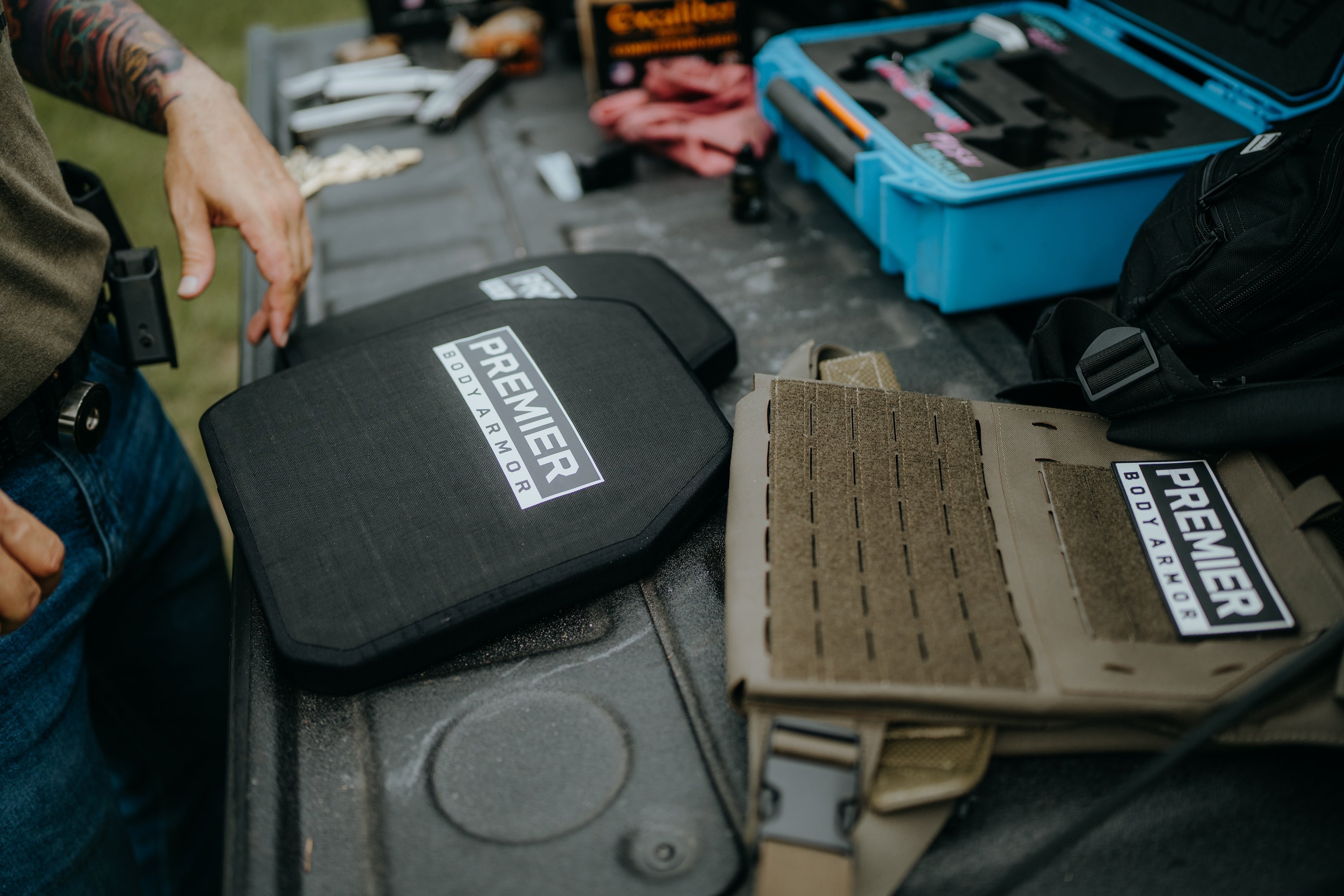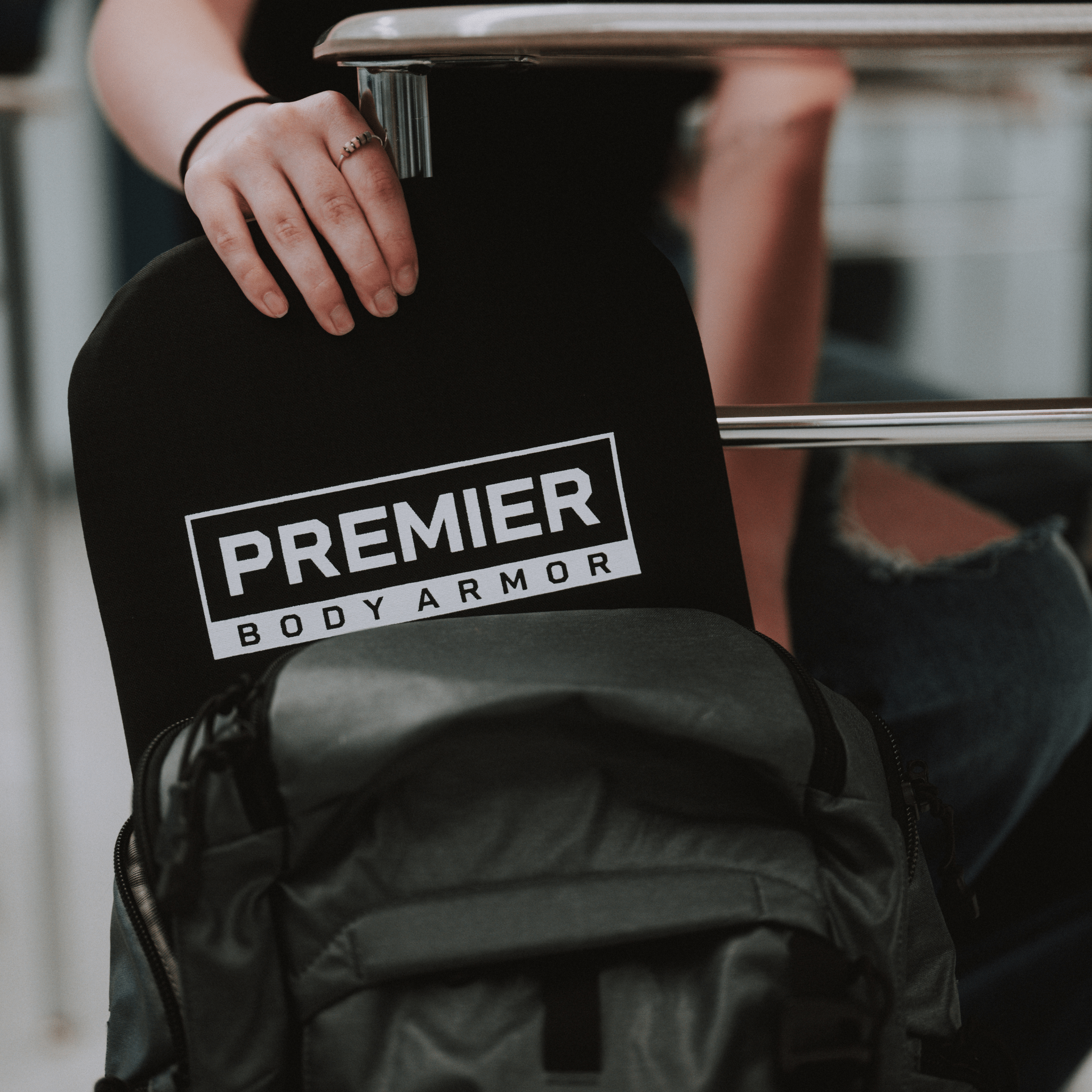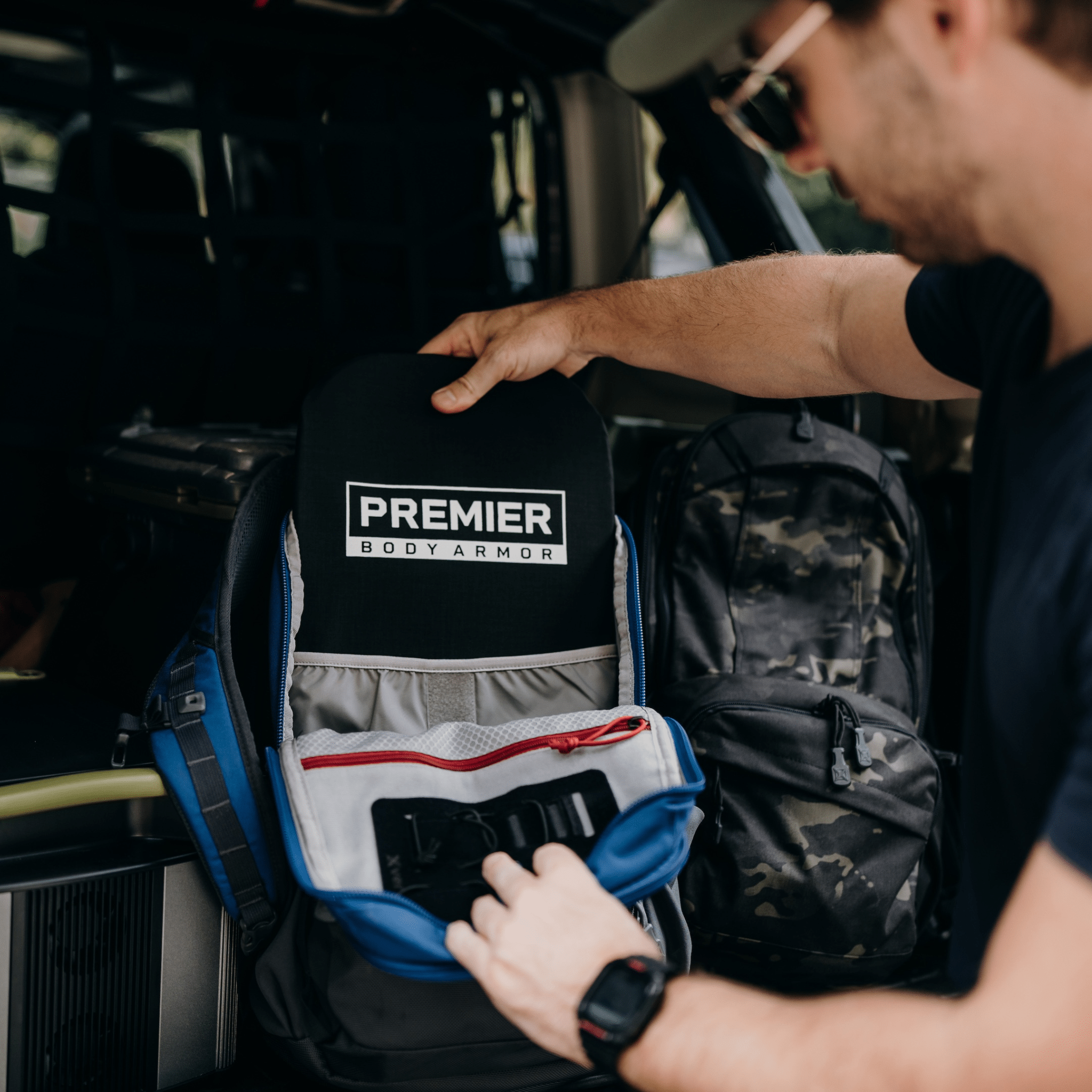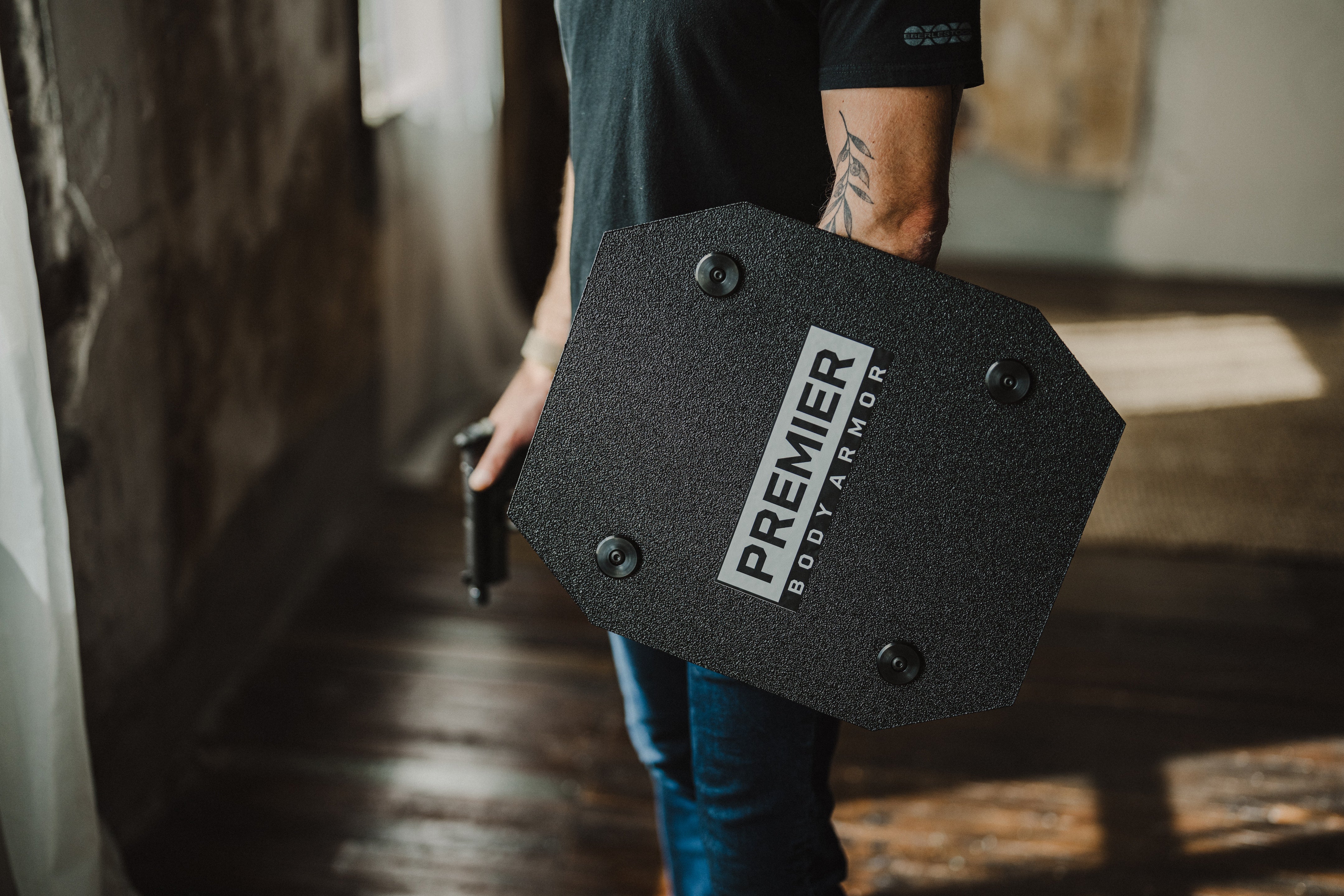Is Body Armor Legal For Civilians? Guide To Body Armor Laws
*updated March 2025
Is body armor legal? Can I buy body armor? These are valid and important questions to ask before making a purchase concerning your safety.
A Basic Overview of Federal Body Armor Laws In The USA
Finding body armor to purchase is not difficult, but the legality of body armor is confusing. As a general rule, law-abiding citizens can purchase, own and wear body armor. Federal law regulates body armor under 18 U.S.C.A. Section 931. In the USA, laws restrict the possession, use, and purchase of certain types of body armor.
For example, felons are prohibited from purchasing or possessing body armor. Some other types of body armor, specifically those designed for military use, may not be available for civilians to purchase or use.
Who can buy body armor?
No federal laws prohibit the purchase or possession of general body armor by law-abiding US citizens over the age of 18. It’s your right to protect yourself.
Where can you buy body armor?
In all states except Connecticut, body armor can be bought or sold in person, over the phone, or online. In Connecticut, body armor must be sold in person, so online or phone purchases are not allowed. However, New York is the only state that limits the constitutional right of its citizens to purchase body armor.
Can you wear body armor in public?
At the federal level, no specific laws prohibit individuals from wearing body armor in public.
What Kinds of Products are Considered Body Armor?
What is body armor? Body armor includes protective clothing designed to absorb or deflect ballistics. Products such as bulletproof vests, bulletproof backpacks, and ballistic helmets all fall under this category.
But is body armor legal? Generally, body armor is legal for purchase and possession by law-abiding citizens, with some state-specific restrictions (see chart and details for each state below).
Bulletproof Vests are Legal to Purchase
Bulletproof vests are a type of wearable body armor designed to protect against firearm projectiles.
Are bulletproof vests legal? Absolutely! They are legal to purchase for law-abiding citizens in the United States because federal law permits the possession of legal bulletproof vests. Still, some states, like Connecticut and New York, have specific regulations.
Bulletproof Backpacks and Backpack Plates are Legal
Are bulletproof backpacks legal? Yes, it is legal to have a bulletproof backpack plate and backpack plates in most states in the United States. Bulletproof backpacks provide an extra layer of safety for personal protection, especially in schools or while traveling. For more info, check out our guide to bulletproof backpack plates.
Plate Carriers are Legal
Is it legal to own a plate carrier? Similar to other types of body armor, plate carriers (which are tactical vests designed to hold bullet-resistant plates) are also legal for civilian use under federal law. But it’s important to check state-specific regulations as some states may have additional restrictions.
Are Ballistic Helmets Legal to Own?
Are ballistic helmets legal to own? Under federal law, civilian ownership of ballistic helmets is broadly permitted for law-abiding citizens. These helmets, also referred to as “bulletproof helmets”, are designed to protect the head from ballistic threats.
While they are legal in most states, convicted felons are generally prohibited from possessing any form of body armor, including ballistic helmets.
For more in-depth guidance on helmet types and regulations, check out our comprehensive guide to ballistic helmets.
Is it Legal to Buy Ballistic Helmets?
Is it legal to buy ballistic helmets? For most civilians in the United States, buying a ballistic helmet is legal (often referred to as a “civilian legal ballistics helmet”). In some states, however, regulations require in-person transactions rather than online sales, and certain areas may limit access to individuals with specific backgrounds.
Be sure to check your local laws before you buy. If you decide a helmet is right for you, browse our Fortis ballistic helmet to see an example of reliable protection designed for civilian use.
Specific Body Armor Laws by State
Listed below are each state’s general rules and regulations concerning body armor legality.
**This information has been gathered for your convenience. It should be viewed as educational material, not as the final say on body armor and the legality of possession or purchase thereof. You are responsible for doing your research and making your own decision about your purchase, possession, use, etc., of body armor.
Alabama Body Armor Laws
In Alabama, it is prohibited for convicted felons to own body armor.
Alaska Body Armor Laws
In Alaska, it is prohibited for convicted felons to own body armor.
Arizona Body Armor Laws
Arizona law states that body armor is any “clothing or equipment designed in whole or in part to minimize the risk of injury from a deadly weapon." In Arizona, it is prohibited for convicted felons to own body armor. It is also a class 4 felony to commit a felony while knowingly wearing or using body armor.
Arkansas Body Armor Laws
In Arkansas, a convicted felon of a violent crime may not own or purchase body armor. It is a class A misdemeanor. Violent crimes include murder, manslaughter, aggravated robbery, battery in the first degree, and aggravated assault. In Arkansas, "body armor" refers to a physically worn item intended to protect from bullets.
California Body Armor Laws
In California, it is prohibited for convicted felons to own body armor. It is a felony to commit a violent offense while wearing a body vest. The addition of a body vest during the crime can add from one to five years to a sentence. In California, a “body vest" refers to "any bullet-resistant material intended to provide ballistic and trauma protection for the wearer."
Colorado Body Armor Laws
In Colorado, it is prohibited for convicted felons to own body armor.
Connecticut Body Armor Laws
In Connecticut, it is a class A misdemeanor for convicted felons to own body armor. You may NOT purchase body armor online or over the phone in this state. All transactions must be in person. It is a class B misdemeanor to purchase body armor without meeting the seller face to face. Failing to keep this ordinance is punishable by imprisonment, a fine, or both.
There are exceptions for law enforcement professionals, government officials, and military members. "Body armor" is defined as “material designed to be worn on the body and to provide bullet penetration resistance.” in Connecticut.
Delaware Body Armor Laws
In Delaware, it is prohibited for convicted felons to own body armor. It is considered a class B felony to wear body armor while committing or attempting to commit a felony. In Delaware, "Body armor" is material worn on the body that provides "bullet penetration resistance."
Florida Body Armor Laws
In Florida, it is prohibited for convicted felons to own body armor. It is a third-degree felony to commit crimes such as murder, robbery, and kidnapping, among others, while wearing a body vest. A "body vest" refers to threat level I, soft body armor.
Georgia Body Armor Laws
It is prohibited for convicted felons to own body armor. As in other states, it is a felony in Georgia to commit or attempt to commit a crime while wearing a bulletproof vest (harsher sentences for crimes involving narcotics). In Georgia, a "bulletproof vest" refers to threat level I, soft body armor bullet-resistant.
Hawaii Body Armor Laws
It is prohibited for convicted felons to own body armor in Hawaii.
Idaho Body Armor Laws
In Idaho, it is prohibited for convicted felons to own body armor.
Illinois Body Armor Laws
In Illinois, it is prohibited for convicted felons to own body armor. “Body armor” refers to wearable soft body armor (designed to stop bullets) that can be concealed. It is a class A misdemeanor to wear body armor knowingly and possess a dangerous weapon other than a firearm while committing a crime.
Indiana Body Armor Laws
In Indiana, it is prohibited for felons to own body armor. It is also a level 6 felony to knowingly or intentionally wear body armor while committing a felony; it is considered an unlawful use of body armor. “Body armor,” in this context, means metal or another material that protects against weapons or other “bodily injury.”
Iowa Body Armor Laws
In Iowa, it is prohibited for convicted felons to own body armor.
Kansas Body Armor Laws
Convicted felons are prohibited from owning or purchasing body armor unless it is for their employment. It is a crime to commit a felony while wearing body armor. In this state, "body armor" means “clothing or a device designed or intended to protect a person’s body or a portion of a person’s body from death or injury caused by a firearm.”
Kentucky Body Armor Laws
In Kentucky, it is prohibited for convicted felons to own body armor.
Louisiana Body Armor Laws
In Louisiana, "body armor" is a metal or other material that protects against weapons or other bodily injuries. Louisiana law states that it is unlawful to own body armor if someone has been convicted of a violent crime, burglary or robbery, trespassing, wrongful use of weapons, making or possessing a bomb, or a drug violation. In Louisiana, it is prohibited for convicted felons to own body armor.
Maine Body Armor Laws
In Maine, it is prohibited for convicted felons to own body armor.
Maryland Body Armor Laws
A convicted felon may not own body armor. However, you can apply for a permit to own body armor. It is unlawful to wear bulletproof body armor related to drug trafficking crimes or crimes of violence. In Maryland, a fine or jail time may be applied if convicted of a misdemeanor charge. "Bulletproof body armor" refers to a material or article worn to resist ammunition.
Massachusetts Body Armor Laws
In Massachusetts, "body armor" is defined as glass fiber or any other material designed to protect the wearer against ammunition or other weapons. Convicted felons are prohibited from owning body armor. It is unlawful to use or wear body armor while attempting to commit a felony. This is an imprisonable offense.
Michigan Body Armor Laws
In Michigan, "body armor" means "clothing or a device designed or intended to protect an individual's body.” It is illegal for a felon convicted of a violent crime to purchase or possess body armor. Acting against this law may result in jail time or a fine.
However, if body armor is needed for employment, permission may be granted for the person to use body armor.
Minnesota Body Armor Laws
In Minnesota, it is prohibited for convicted felons to own body armor. It is a felony, punishable by jail time, a fine, or both, to commit a gross misdemeanor or felony while wearing or possessing a bullet-resistant vest. A "bullet-resistant vest" is understood to be "a bullet-resistant garment that provides ballistic and trauma protection."
Mississippi Body Armor Laws
In Mississippi, it is prohibited for convicted felons to own body armor.
Missouri Body Armor Laws
In Missouri, "body armor" refers to "those parts of a complete armor that provide ballistic resistance to the penetration of the test ammunition for which a complete armor is certified.” It is a Class D felony to own, purchase, or possess body armor in Missouri if one has been convicted of or attempted a dangerous felony while wearing body armor.
However, if deemed required for employment, livelihood, or safety with permission from law enforcement, one is allowed to own body armor. In this case, body armor includes plates with or without a carrier.
Montana Body Armor Laws
In Montana, it is prohibited for convicted felons to own body armor.
Nebraska Body Armor Laws
In Nebraska, it is prohibited for convicted felons to own body armor.
Nevada Body Armor Laws
Nevada law states convicted felons cannot own, purchase, or possess body armor unless pardoned. The penalty is imprisonment, a fine, or both. In Nevada, "body armor" is understood as “clothing or a device designed or intended to protect the body or a portion of the body of a person from injury caused by a firearm, regardless of whether the clothing or device is to be worn alone or as a complement to other clothing or another device.”
New Hampshire Body Armor Laws
In New Hampshire, convicted felons are prohibited from owning body armor. It is a class B felony to attempt or commit a crime while possessing body armor in this state.
New Jersey Body Armor Laws
In New Jersey, convicted felons are prohibited from owning body armor. It is against the law to wear a body vest while in the act or in an attempt to run after committing murder, manslaughter, robbery, sexual assault, burglary, kidnapping, criminal escape, or assault. "Body vest" refers to body armor that protects against bullets and ballistic trauma.
New Mexico Body Armor Laws
Convicted felons are prohibited from purchasing body armor in the state of New Mexico.
New York Body Armor Laws
New York State is the only state restricting citizens' constitutional right to purchase body armor. According to the overreaching New York State Penal Law Section 270.21, "Unlawful purchase of body armor is a class A misdemeanor for a first offense and a class E felony for any subsequent offense."
In New York, "body armor" refers to any personal protective body covering intended to protect against gunfire, regardless of whether such product is to be worn alone or is sold as a complement to another product or garment.
North Carolina Body Armor Laws
Convicted felons are prohibited from possessing body armor in North Carolina. Wearing or possessing a bulletproof vest while committing a crime is illegal.
North Dakota Body Armor Laws
Convicted felons are prohibited from owning body armor.
Ohio Body Armor Laws
In Ohio, "body armor" means "any vest, helmet, shield, or similar item that is designed or specifically carried to diminish the impact of a bullet or projectile upon the offender's body." It is a felony to commit or attempt a violent offense while carrying or wearing body armor.
Convicted felons are also prohibited from owning body armor.
Oklahoma Body Armor Laws
In Oklahoma, "body armor" is defined as "a vest or shirt of ten plies or more of bullet-resistant material." As in most states, it is a felony in Oklahoma, punishable by jail time, to commit or attempt to commit a felony while wearing body armor. Unless law enforcement approves, convicted felons are prohibited from owning or purchasing body armor.
Oregon Body Armor Laws
It is a class B felony to commit or attempt to commit a violent felony or misdemeanor while knowingly possessing or wearing body armor in Oregon. Convicted felons are prohibited from buying or owning body armor.
Oregon law states that "body armor" refers to "any clothing or equipment designed in whole or in part to minimize the risk of injury from a deadly weapon."
Pennsylvania Body Armor Laws
In Pennsylvania, it is a felony in the third degree to commit or attempt to commit a felony while wearing or possessing body armor. "Body armor" refers to any protective covering for the body made of fiber, glass fiber, or another material designed to stop ammunition or other weapons.
Rhode Island Body Armor Laws
In Rhode Island, convicted felons of violent crimes are prohibited from buying, owning, or possessing body armor. However, if the government approves, convicted felons may possess body armor for employment and other approved activities. Failure to comply may result in prison time, a fine, or both. "Body armor" is defined as a "personal protective body covering intended to protect against gunfire."
South Carolina Body Armor Laws
Convicted felons of violent crimes may not buy, own or possess body armor. However, there are exceptions for employment and other approved activities. It is a felony to commit or attempt to commit a violent crime while wearing body armor. The penalty is prison time, a fine, or both.
In South Carolina, "body armor" refers to "clothing or a device designed or intended to protect an individual's body or a portion of an individual's body from injury caused by a firearm."
South Dakota Body Armor Laws
Convicted felons are prohibited from purchasing or owning body armor in South Dakota.
Tennessee Body Armor Laws
It is considered a class E felony to knowingly commit a felony of violence, burglary or car theft, arson, or a felony involving controlled substances while wearing a body vest in the state of Tennessee. Convicted felons may not own or purchase body armor. "Body vest" refers to threat level I, bullet-resistant, soft armor.
Texas Body Armor Laws
In Texas, it is a third-degree felony for a convicted felon to own or possess metal or body armor. "Metal or body armor" is defined as "anybody covering manifestly designed, made, or adapted to protect a person against gunfire."
Utah Body Armor Laws
Utah law states that "body armor" refers to “any material designed or intended to provide bullet penetration resistance or protection from bodily injury caused by a dangerous weapon.” In Utah, it is an increased penalty for someone wearing body armor who commits and is convicted of a violent felony or an attempt involving a dangerous weapon. The sentence for this crime can be a first, second, or third-degree felony.
Vermont Body Armor Laws
Convicted felons are prohibited from purchasing body armor in Vermont.
Virginia Body Armor Laws
Virginia law defines body armor as material "designed to diminish the effect of the impact of a bullet or projectile." it is a Class 4 felony to commit a crime of violence or a felony involving controlled substances while wearing body armor and possessing a firearm or knife. Convicted felons may not purchase body armor in Virginia.
Washington Body Armor Laws
In Washington state, convicted felons are prohibited from purchasing body armor.
West Virginia Body Armor Laws
Those convicted of a felony may not purchase body armor. It is a crime to commit a felony offense involving physical force, threats of force, or a firearm while wearing body armor. If convicted, the penalty is imprisonment, a fine, or both.
West Virginia law defines "body armor" as a "jacket, vest, or other similar apparel or device constructed to provide ballistic resistance to penetration and deformation and intended to protect the human torso against gunfire.
Wisconsin Body Armor Laws
A convicted felon of a violent crime may not own or possess body armor in Wisconsin. One can apply to law enforcement for an exception on the grounds of personal safety, among other reasons. "Body armor" is defined as "any garment that is designed, redesigned, or adapted to prevent bullets from penetrating through the garment."
Wyoming Body Armor Laws
In Wyoming, convicted felons are prohibited from owning body armor.
*Premier Body Armor is not the official authority on these laws and regulations. For more information, contact your local government official, law enforcement officer, or lawyer.
What the law says about buying body armor and intent
Wearing body armor while committing a violent or drug-related crime, or using it to aid in the commission of such a crime, is illegal under federal law. This offense carries a maximum penalty of 10 years in prison.
Body armor legality in other countries
Around the world, body armor laws and regulations vary significantly. In some countries, like Germany, civilians are prohibited from possessing or wearing body armor. In Australia, owning body armor requires a permit due to strict regulations. In Canada, it is legal to purchase and own body armor, but it is illegal to wear it while committing a crime.
Given the differences in laws, regulations, and cultural attitudes towards body armor worldwide, it is crucial to understand the legal landscape in your specific location before buying and using body armor.
Shipping Body Armor
Premier Body Armor only ships within the United States and parts of Canada. Canadian buyers are responsible for any import fees, and shipments cannot be sent to certain provinces due to restrictions (AB, BC, MB & NS).










The mention of Germany is totally wrong, the law only prohibits bulletproof vests at a public demonstration.
Leave a comment